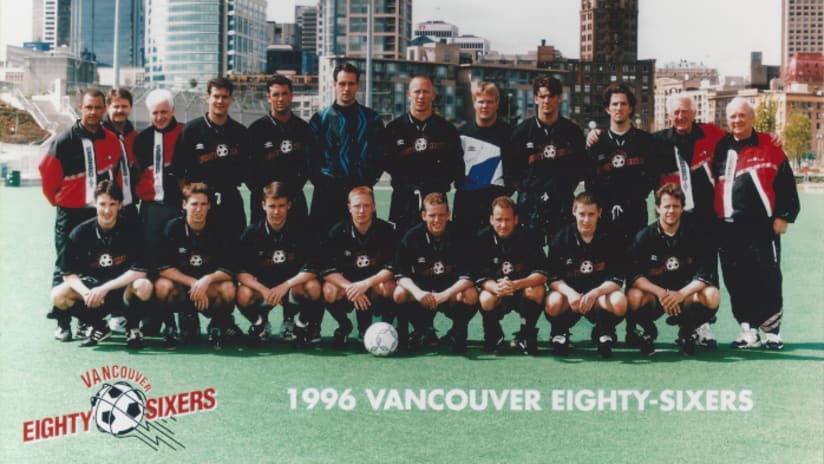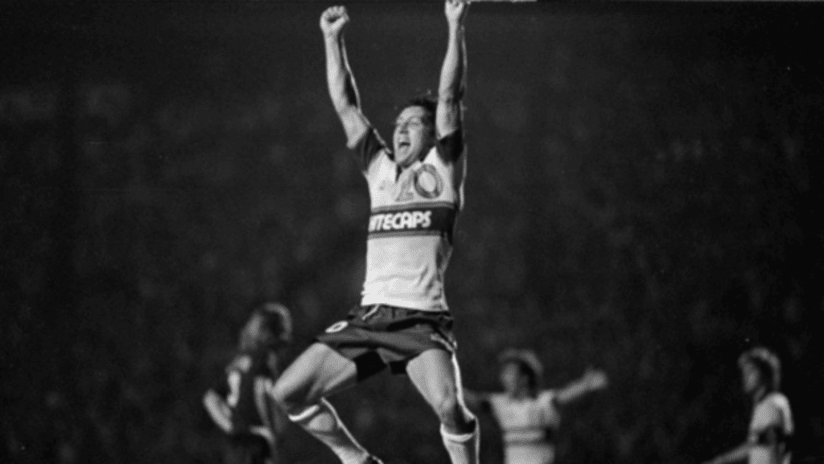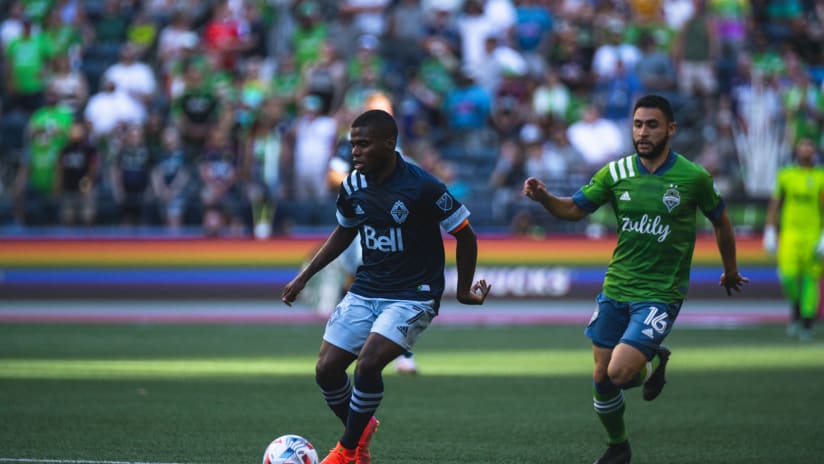Nick Dasovic, head coach of the Whitecaps FC Development Squad, spent nearly two full years earning his UEFA Pro License, the highest coaching license in world football. Many don’t know the work, dedication, and degree of education that goes into this course. In this blog, Daso will tell us about people he met along the way as he went through his program with the Scottish Football Association, and the lessons he learned from each person.
Today, Daso discusses John Hughes, who played 17 years with several clubs in Scotland and managed Falkirk and Hibernian.
- Daso's Football Doctorate:Meeting Sir Alex Ferguson
INTRODUCTION
John Hughes began his professional career in football as a player in Scotland and after retiring he pursued a career in football management, landing several managerial positions, the longest of which was with Falkirk in 2003 to 2009, and most recently Raith Rovers in 2017.
With this in mind, his presentation was quite informative and reflective and offered a first-hand account of what he dealt with both on and off the field. He was also very forthcoming with his personal evaluation of his time at Hibernian and willingly shared what he would have done differently if he was given the opportunity. The following text is derived from John Hughes’ presentation on the role of the manager in modern football.
RELATIONSHIP WITH THE CHAIRMAN & BOARD
According to Hughes, establishing a solid relationship with the chairman and the members of the board is one of the most important things you have to do as a new manager of a club.
He believes that it is important to start forging relationships from the onset because you are at your strongest when you initially take over the club so it is imperative that you set out your goals and visions right from the start. He also mentions that it is important to be aware of how much you educate the chairman and understand that this is first and foremost a business and consequences resonate far farther than results on the pitch.
At the same time, Hughes recognizes the importance of the budget and its influence on the success of the manager. He believes that it is important that the chairman and the board offer a clear picture of what is available in regards to monies, since it directly influences the type of squad you can build. In the end, Hughes interestingly concludes that “If you don’t have the backing of the chairman then you’re as good as done.”
MANAGERIAL OVERSIGHT
As a manager, it is important that you oversee all aspects of the football club. This includes everything from your staff to player development, scouting and even the team chef. As such it is important that you surround yourself with competent people that you can trust and have faith in. By doing so, you put yourself in a situation where you can instill your own culture and team philosophy in the club.
On a personal note, I found this to be all too true when I was handed the interim manager job at Toronto FC with just 10 games to go. Unable to sign new players and lacking the necessary time to instill my own philosophy I inherited a team that fit my predecessor's style more than my own. In the end, we finished with a 3-4-3 record over the final 10 games.
RELATIONSHIP WITH THE MEDIA
Hughes acknowledges the fact that the media is part of the modern game and that managers have to learn to deal with redundant, mundane, and sometimes absurd commentary and questions. He also points out that with the growth of non-traditional media outlets such as blogs, podcasts, 24 hour sports talk radio, and Twitter, that managers have to pay more attention to developing their communication skills because everything that is being said is being dissected 10 times over. In summary, he advises that it is in your best interest to learn quickly which media outlets you can trust and which ones you should be wary of, since they have the power to influence public perception.
RELATIONSHIP WITH THE SUPPORTERS
A manager’s relationship with supporters often ebbs and flows from admiration to frustration to sometimes even pure hate for the unlucky few.
Hughes stresses that it is important to educate the supporters of what is a realistic goal for the team. It is important that supporters understand where the team stands and what the season goals are so that everyone remains realistic regardless of good or bad stretches in performance. Personally, I believe that not only do you have to educate the supporters but also the players in setting attainable and realistic goals before the season begins.
At the same time, show them that you have long term ambitious goals and that complacency will not be accepted while you are in charge.
This blog was edited for brevity by Maxim Fossey.




